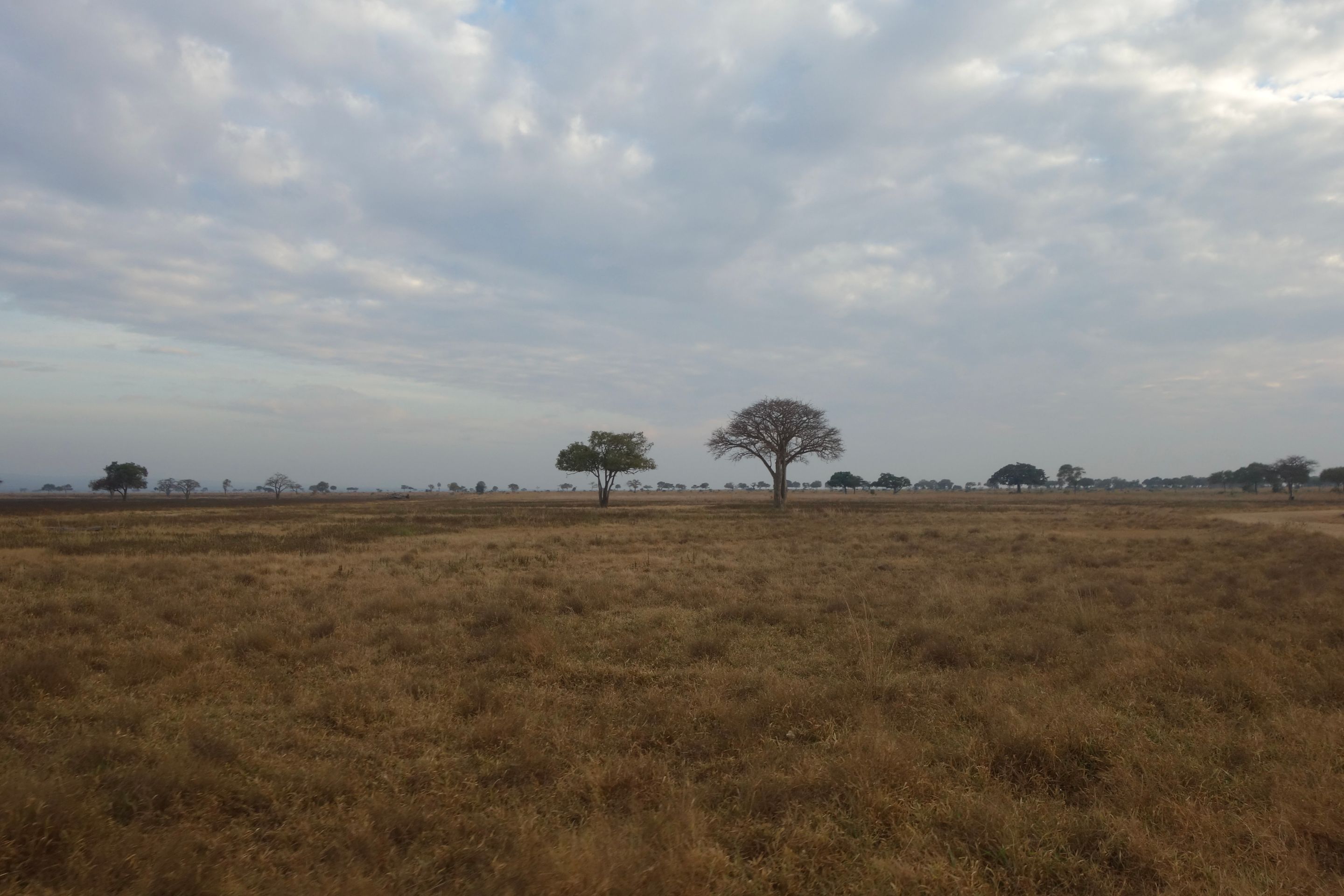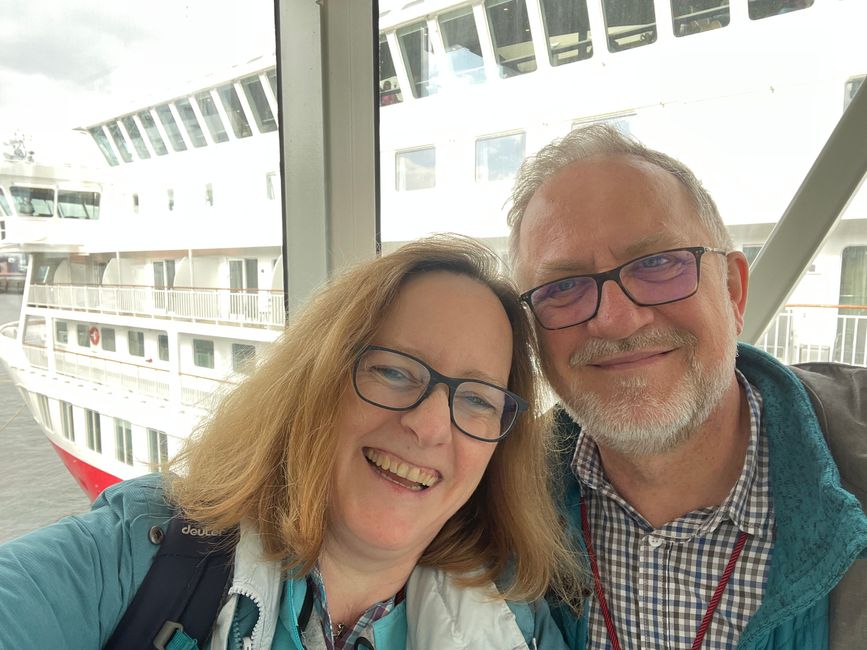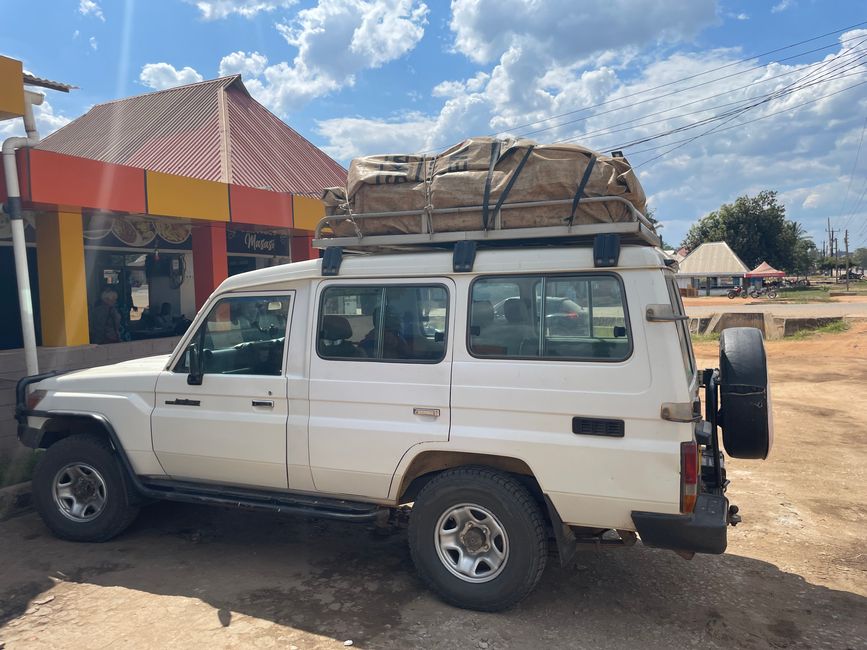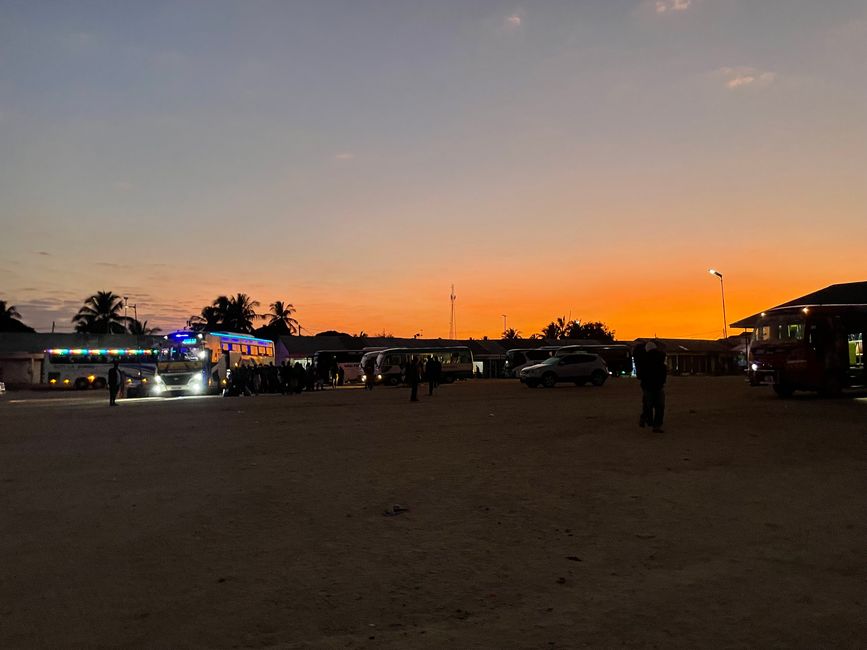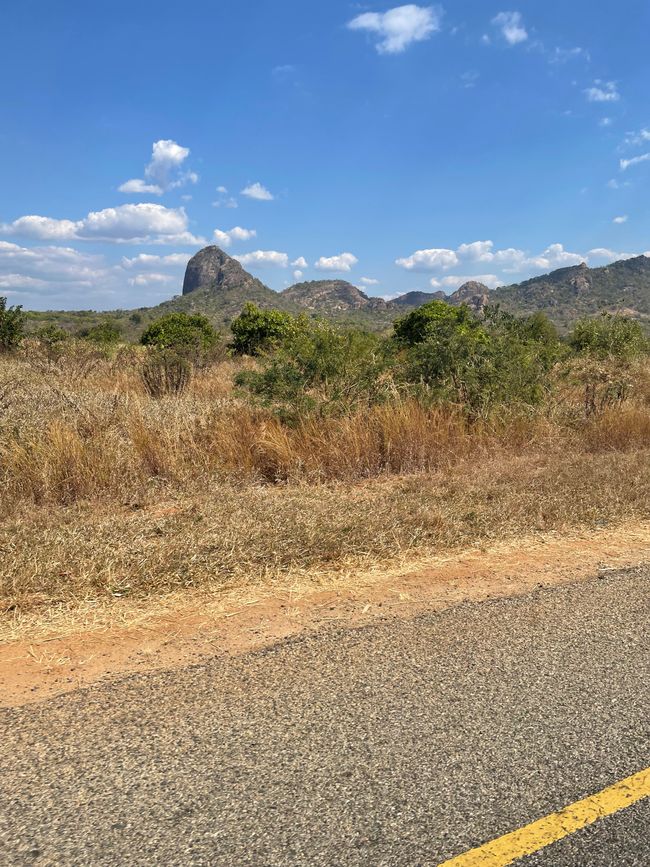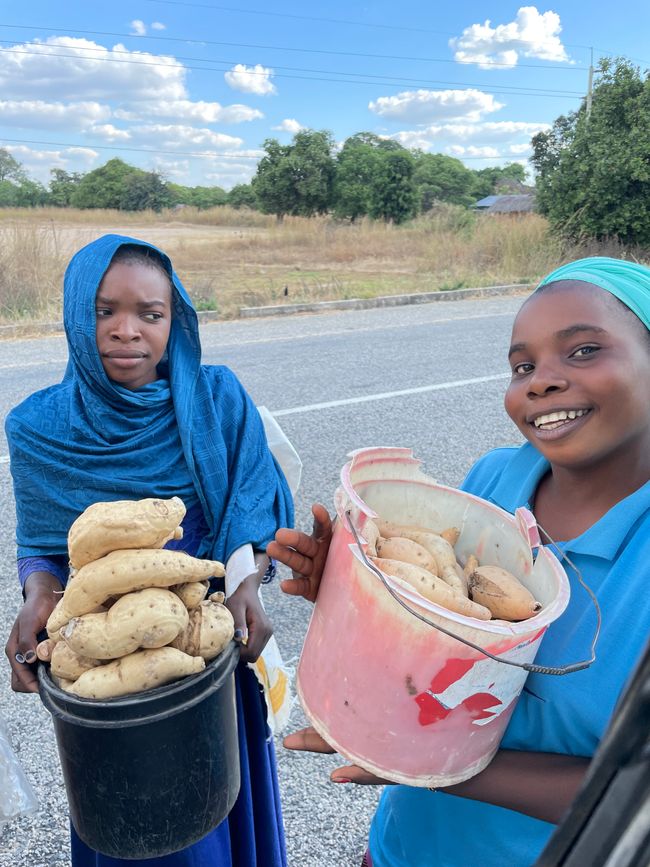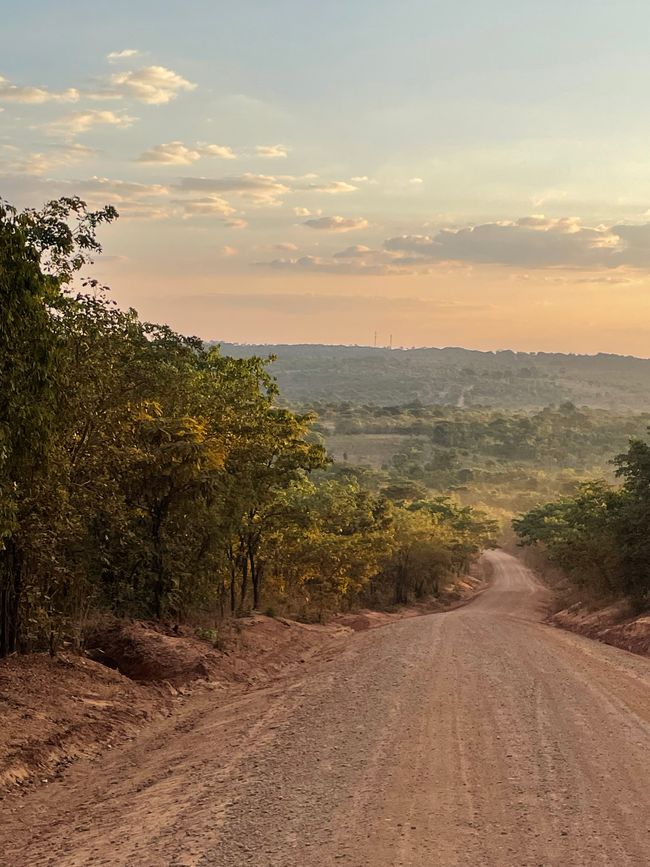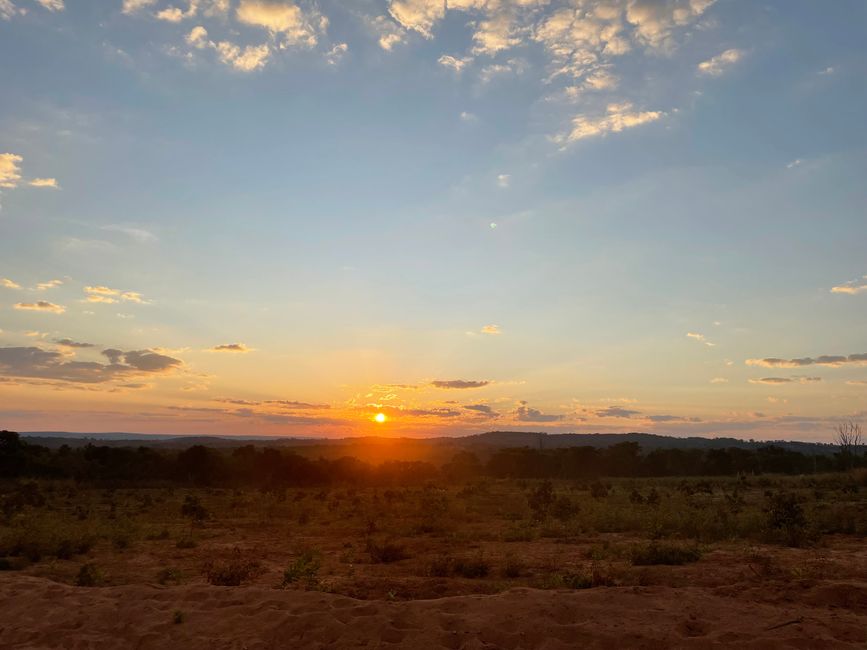Tuesday: on tour into the bush
Wotae: 24.07.2024
Wɔ Nudɔdɔ na Nyadzɔdzɔgbalẽ
Early in the morning, the four of us set off on a tour: Magonga, Tim, Gert and I wanted to take the bus to Tunduru. To take the load off the car a bit and try out the bus ride here. The bus was supposed to leave at 6:30 a.m., so we arrived at the bus station almost in the dark with empty stomachs. Our bus hadn't arrived yet, but it was already busy. So we had plenty of time to watch the shops and activities starting to emerge, mobile kiosks with thermos flasks and cups drive by, shops are set up, garbage is collected. At some point the bus arrives, but we are taken near a police station where we check. It stays there. Magonga goes to ask, there is something wrong with a tire and they want to make sure that it can be changed on the way...
After 1-2 hours he gets the fare paid. We have a quick breakfast and then the others come over. So nine of us set off, squeezed together in the Toyota Landcruiser. There are two benches across the back and an adventurous middle seat is built in the front. So we drive the five hours or so on the tarmac road to Tunduru, with lunch and a short stop along the way. And a shopping stop at the "potato village": potatoes are grown there. You can see it on the road, where people are sitting with their buckets full of different types of potatoes. As soon as our car stops, a crowd of people surrounds us, praising theirs as the best potato - a loud commotion! Our driver takes care of the shopping and we carry on.
In Tunduru (more precisely: Nanjoka) there is a short break where Marko and Birgit Weiss live, a property with several houses, as early missionaries built them; right next to it is the Bible school. Then we continue on the unpaved road to Mbesa, 1.5 - 2 hours for 60 km. Here and earlier you can sense the force with which the last rainy season struck. Hilly road, bumpy track to the limit, red sand...
Tim and I drive up with Magonga and his wife in his car, sunset in the bush! In Mbesa we are accommodated in a mission guesthouse and in the evening we get to know almost the only white people living there today, Elli and Helga and Elli's foster son, an 11-year-old Tanzanian boy. (In earlier times there were significantly more missionaries there, but now only local doctors and nurses are employed in the hospital, for example, and similarly in the trade school.)
Correction :
Besides the two women, there is another German family in Mbesa; the father works in administration and IT, but they are currently in Germany.
Wɔ Nudɔdɔ na Nyadzɔdzɔgbalẽ
Ŋuɖoɖo
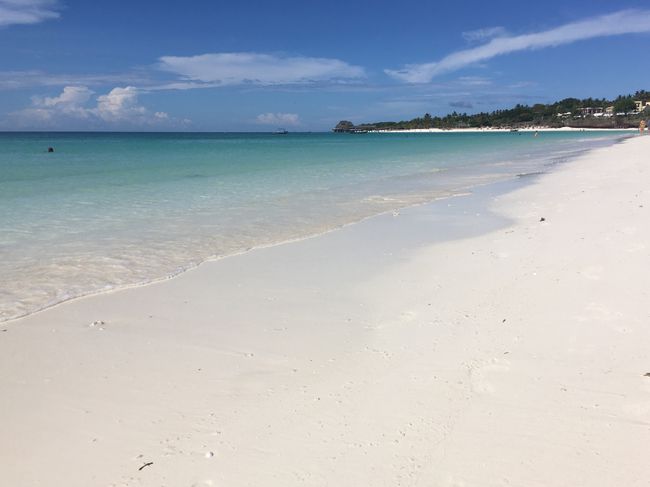
Mɔzɔzɔ ŋuti nyatakakawo Tanzania
